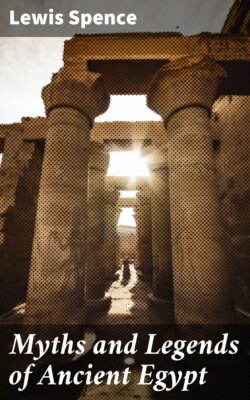Читать книгу Myths and Legends of Ancient Egypt - Lewis Spence - Страница 32
На сайте Литреса книга снята с продажи.
Legal Code
ОглавлениеEgyptian law appears to have been traditional, and no remains of any specific code have come down to us. Royal decrees and regulations were promulgated from time to time, and these were usually engraved on stone and carefully preserved. In the Ptolemaic period travelling courts were instituted, which settled litigation of all descriptions; but the traditional law of the country appears to have been well known to the people and fully recognized by their rulers. A favourite way of having a grievance redressed was to petition the king or one of the great feudal princes. Courts sitting to hear specific cases were nearly always composed of royal or territorial persons in early days, and in later times of officials. The right to appeal to the king existed. Evidence was given upon oath, a favourite oath being "By the king" or "By the life of the king." Only occasionally was torture employed for the purpose of extracting evidence. Penalties were various. In many instances the accused was allowed to take his own life. For minor crimes the bastinado or disfigurement by cutting off the nose, banishment or fine, were the usual punishments. During the Old Kingdom decapitation was the usual means of inflicting death. The drawing up of contracts was universal, and these were, as a rule, duly witnessed. From the time of the Twenty-fifth Dynasty these are discovered in abundance, and usually refer to sales or loans. Although a woman could inherit property, she had not the entire right of dealing with it, but, if divorced, her dowry could not be forfeited. Many of these ancient documents deal with the buying and selling of slaves. It is not clear, however, whether or not the consent of a slave was necessary to his sale.
